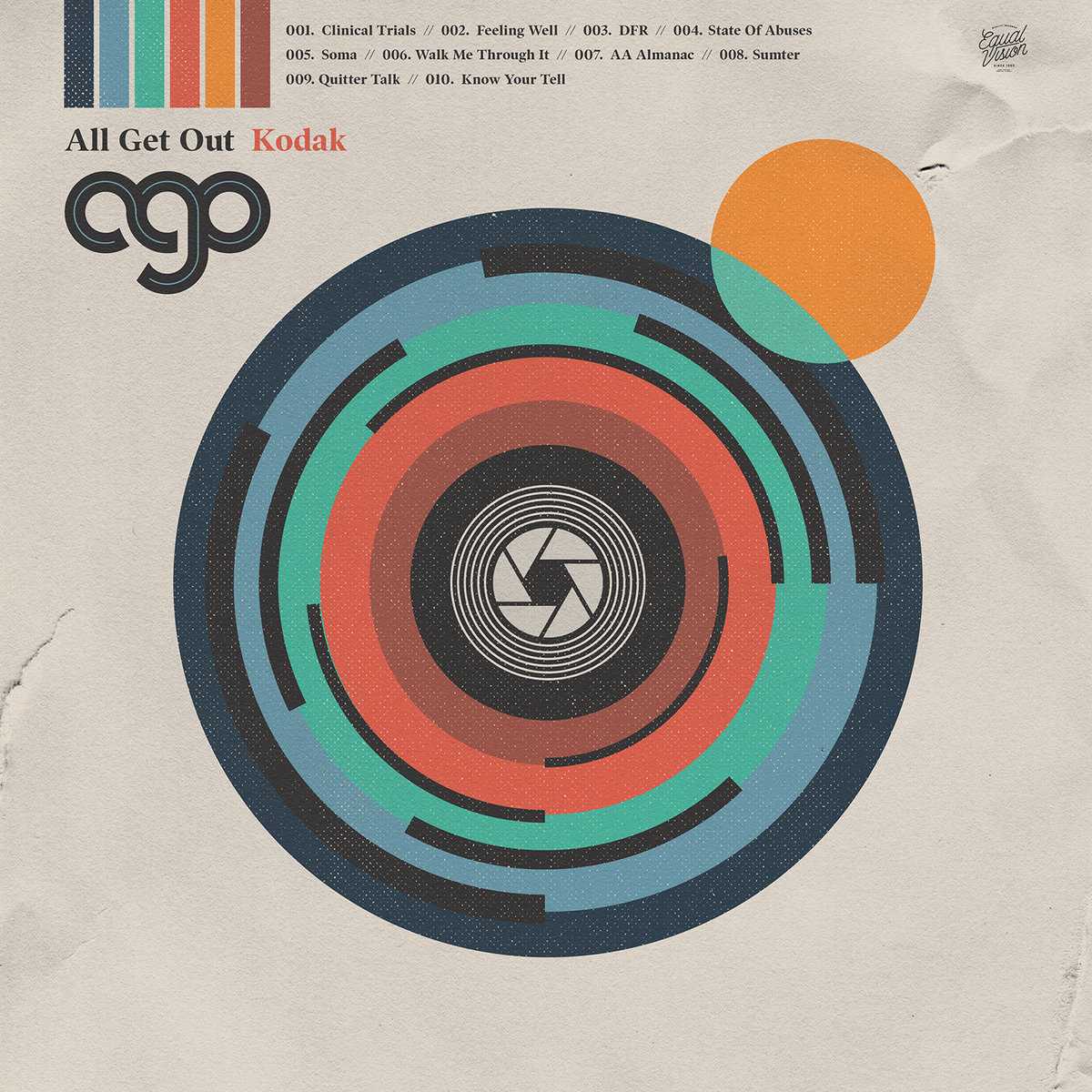All Get Out
Kodak
EQUAL VISION
There are two distinct visions of smalltown America. On one hand, there’s rose-tinted, nostalgic romanticism—the kind of wistful, carefree days captured so well in, say, Dawson’s Creek or Calvin and Hobbes. And then, on the other hand, there’s the brutal socio-economic reality of those places: the poverty, the conservative politics, the traditionalist church-going values. Of course, neither is entirely accurate. The truth, as the truth always is, is much more complex. It’s a muddled combination of all of it at once, those extremes pushing and pulling and taunting each other, none of it more real than the rest.
That constant contradiction is something captured perfectly by Kodak. The fourth full-length by All Get Out, a band that was formed in one such small town (Sumter, South Carolina), it’s a powerful homage to the good, the bad, and the stasis—deliberate or otherwise—of those places, as well as the desire to escape them and, despite that, the comfort they still offer. Indeed, on the gloriously upbeat yet downtrodden “Sumter,” frontman (and only remaining original member) Nathan Hussey makes a half-hearted declaration that he “won’t go back to South Carolina,” even though that’s exactly what he did when he moved from Texas back to his home state.
Yet within these songs, his return is not one that marks defeat, but defiance. Opener “Clinical Trials”—a gorgeous, sparse song of ragged beauty imbued with the harsh existence of working class life—might start with the protagonist in a car driving somewhere, but it’s clear as the next nine songs unfurl that while you might be able to physically leave your hometown, it’s always with you, haunting you. In other words, you can never truly escape it—it’s forever part of who you are.
And so, past and present lives collide throughout this record. They’re there—confused and struggling against each other—in the raw, surging, anthemic emo-rock of “Feeling Well” and “DFR,” the former bleeding into the latter as time dissipates and vanishes, Hussey’s fragile vocals lost in limbo as ghosts and memories swarm to inhabit the present. “Soma” is equally as torn, its catchy melody soaring through time and space, while the ominous, minor chord intensity of “AA Almanac” tries to shake off the religious upbringing that shaped Hussey’s youth and the music he once made.
Yet just like the town of Sumter, that influence can never be entirely forgotten. It’s just that perspectives can change, which they clearly have. And yet—and here’s the rub—as the tender, searching tones of closer “Know Your Tell” illustrate, wherever you go, there you are. You can never fully run away from yourself or the places and people that made you. But you can write a superb and intensely personal album about trying to do so. That’s exactly what Kodak is: a profound snapshot of smalltown America, in all its forms, and the effect it has on the lives that are lived there.







